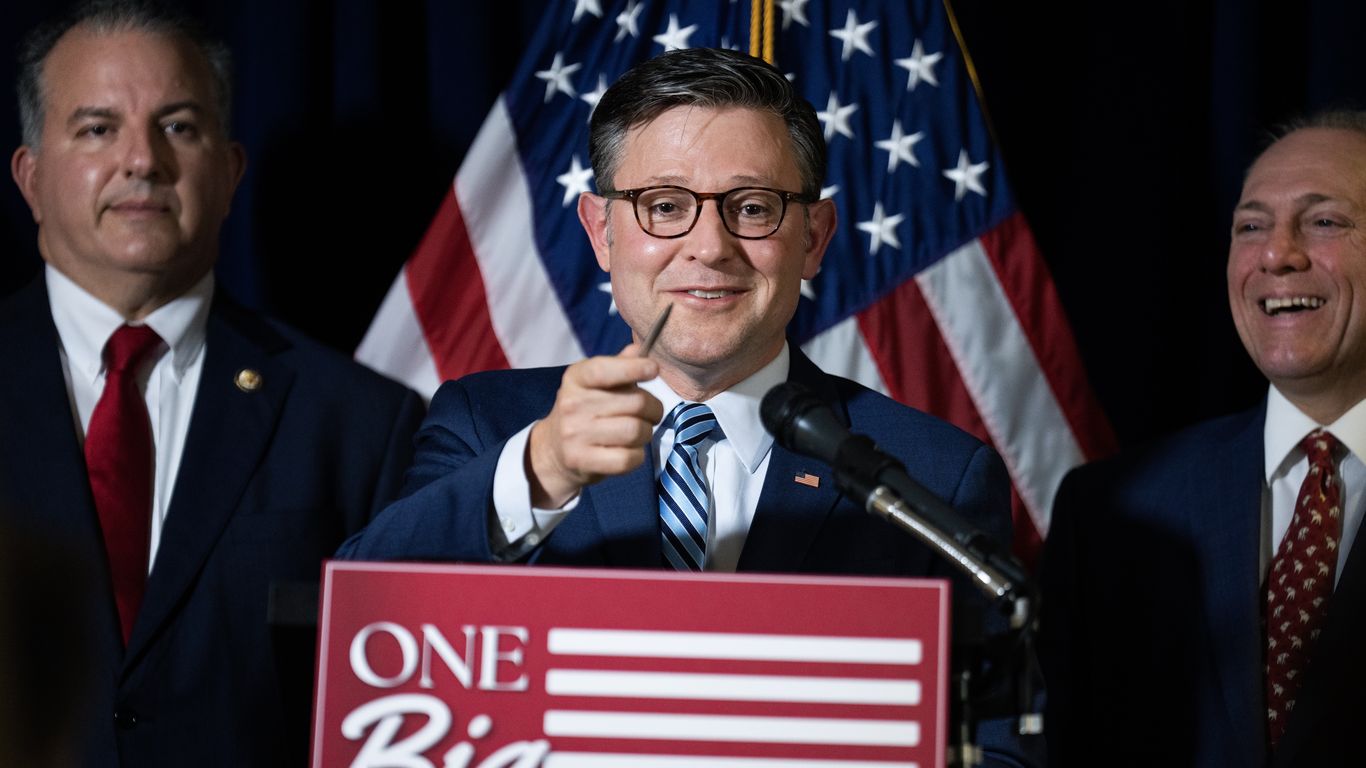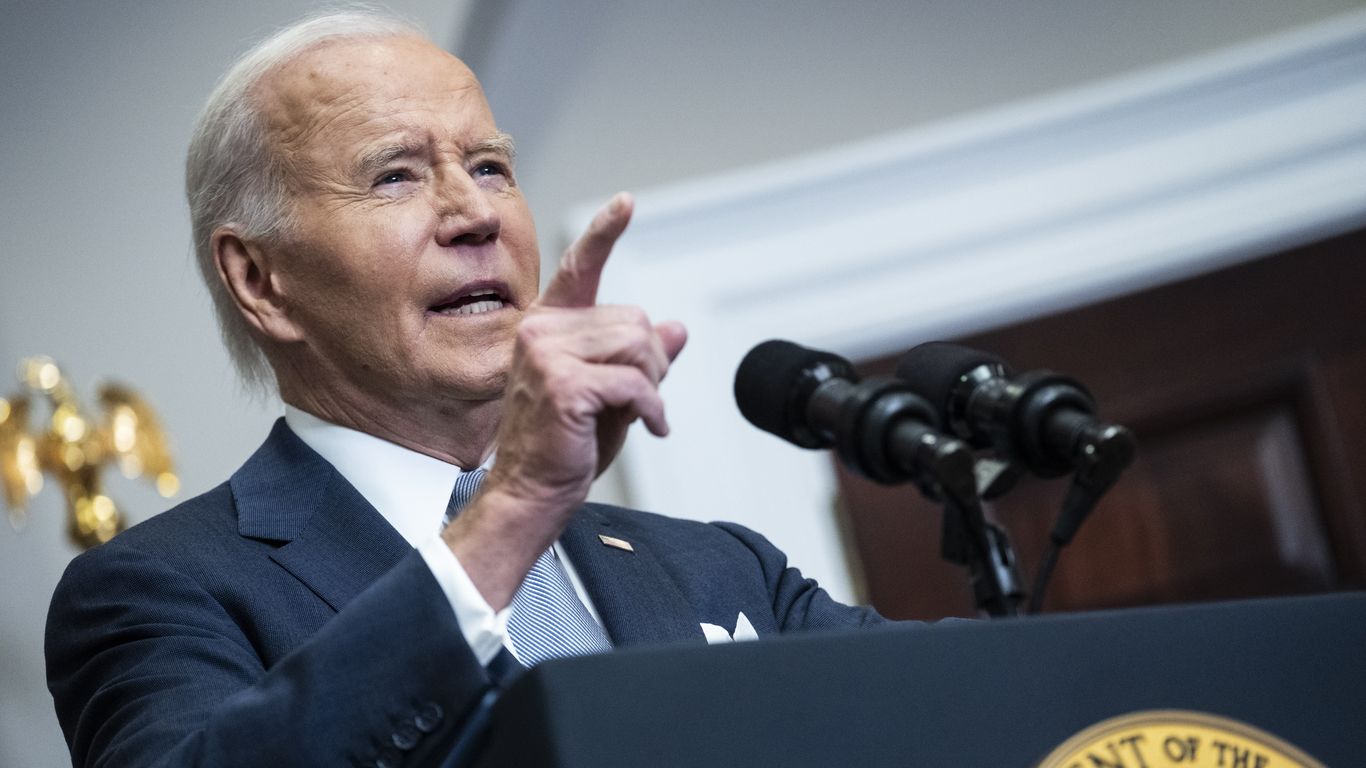The Fallout of a Failed Discharge Petition

The Discharge Petition That Didn't Quite Make It
In a recent move that sent political shockwaves through Washington, Republican Representative Thomas Massie of Kentucky and Democratic Representative Ro Khanna of California attempted to force a vote on a controversial bill using a rarely utilized legislative tactic known as a discharge petition. However, the bold maneuver was quickly shut down by Speaker of the House Nancy Pelosi, who insisted that the petition was not the reason for her decision to adjourn the House earlier than planned.
A Desperate Attempt to Push Forward a Bill
The discharge petition, a rarely used tool in Congress, allows a bill to bypass the committee process and be brought directly to the House floor for a vote if it can garner enough signatures from Representatives. In this case, Massie and Khanna were attempting to push forward a bill that would end the United States' involvement in the war in Yemen. However, their efforts were met with strong opposition from both sides of the aisle, with many questioning the legality and effectiveness of the petition.
The Fallout and Future Implications
The failed discharge petition has sparked intense debates about the use of this legislative tactic and raised questions about the power of individual Representatives versus party leadership. Some have criticized Massie and Khanna for trying to force a vote on a controversial issue, while others have praised their bold move in a highly divided political climate. Regardless of one
About the People Mentioned
Thomas Massie
Thomas Harold Massie, born January 13, 1971, in Huntington, West Virginia, grew up in Vanceburg, Kentucky, after graduating from Lewis County High School.[1][6] He earned a bachelor's degree in electrical engineering and a master's in mechanical engineering from the Massachusetts Institute of Technology.[1][2] Massie founded SensAble Technologies, Inc., inventing touch-based computer interaction technology that secured 29 patents, raised over $32 million in venture capital, employed 70 people, and supported designs for automobiles, jewelry, dental prosthetics, and military implants; he sold the company in 2003.[1][2] In 2010, he was elected Lewis County Judge Executive.[1][2][5] Elected to the U.S. House of Representatives in a 2012 special election and general election, Massie has represented Kentucky's 4th Congressional District—spanning northern Kentucky and 280 miles of the Ohio River—since November 2012.[1][2][4][5] He serves on the House Committees on Transportation & Infrastructure (overseeing roads, bridges, transit, aviation, and waterborne transport) and Judiciary (covering intellectual property, civil liberties, firearms, and industrial hemp).[2] A Republican with a 96% score in the 117th Congress and 83% lifetime from Heritage Action, Massie lives on a cattle farm in Kentucky.[2][3] He was married to his high school sweetheart Rhonda, with whom he had four children; she passed away, leaving him widowed.[1][2] Recently, Massie advocated releasing names tied to over $17 million in congressional settlements for harassment claims under the Congressional Accountability Act, proposing transparency after a House Ethics report on former Rep. Matt Gaetz.[1] He remains active in Congress as of early 2025.[1][2]
Ro Khanna
Ro Khanna is a Democratic U.S. Representative for California's 17th Congressional District, encompassing Silicon Valley, where he has served since 2017 and is currently in his fifth term.[1][2][4] Born in 1976, he previously lectured in economics at Stanford University, taught as an adjunct at Santa Clara Law School, and chaired the Advanced Manufacturing Committee on California's Workforce Development Board under Governor Jerry Brown.[1] As a prominent progressive, Khanna chairs the House Oversight Subcommittee on the Environment (formerly), serves as ranking member of the Armed Services Subcommittee on Cyber, Innovative Technologies and Information Systems, and holds leadership roles including Deputy Whip of the Congressional Progressive Caucus and Democratic Vice Chair of the House Caucus on Indian Americans.[1][4] He refuses PAC and lobbyist contributions, supports labor rights via the PRO Act, Medicare for All, Supreme Court term limits, and overturning Citizens United.[3] Key achievements include authoring the Endless Frontier Act, which underpinned the CHIPS and Science Act signed by President Biden to bolster U.S. science, technology, and manufacturing leadership.[1][3] He convened historic congressional testimony from CEOs of six major fossil fuel companies on climate disinformation, advanced Inflation Reduction Act climate provisions, and secured five bills into law.[1][3] Khanna promotes "economic patriotism" to create jobs nationwide, traveling to deindustrialized regions like Appalachia and the Midwest to advocate for investments in tech hubs, trade schools, and renewables.[5] Currently, he remains active on the Oversight and Accountability Committee, Armed Services, and the Select Committee on U.S.-China Strategic Competition, sponsoring and cosponsoring legislation like H.R.5048 in the 119th Congress.[2][4] His pragmatic progressivism emphasizes national unity, active citizenship, and restoring American manufacturing.[3][5]
Nancy Pelosi
Nancy Pelosi is an American politician and the first woman to serve as Speaker of the U.S. House of Representatives, a role she held from 2007 to 2011 and again from 2019 to 2023, making her the 52nd Speaker overall.[1][4][6] A Democrat representing California's 12th District, including San Francisco, since 1987, she previously served as House Democratic Whip and led House Democrats for over 20 years as Minority Leader.[1][3][4] Born into a Baltimore political family, Pelosi is married to Paul Pelosi, with five children and ten grandchildren.[3] She broke barriers as the first female House Minority Whip in 2001 and Minority Leader in 2002, becoming the highest-ranking woman in U.S. government at the time.[6] Inducted into the National Women's Hall of Fame in 2013, she received the Presidential Medal of Freedom from President Biden in 2024, the nation's highest civilian honor.[1][4][9] Pelosi architected major legislation across Democratic administrations, including the Affordable Care Act under Obama, which expanded coverage to millions and protected those with pre-existing conditions; the American Recovery and Reinvestment Act; Dodd-Frank Wall Street reforms; and the Lilly Ledbetter Fair Pay Act.[1][2][3][7] Under Biden, she drove the American Rescue Plan for pandemic relief, the Infrastructure Investment and Jobs Act, Inflation Reduction Act for drug costs and climate action, and CHIPS and Science Act.[1][3] Other achievements encompass gun violence prevention, children's health care expansion, minimum wage hikes, college aid expansions, veteran benefits, Medicare reforms, and opioid funding.[1][2][4][5] A skilled negotiator, she secured bipartisan wins like World Trade Center Health Program authorization and renewable energy credits amid GOP majorities.[1][4] Her leadership transformed San Francisco through HIV/AIDS funding, transit upgrades, housing, and environmental protections.[8] As of 2026, Pelosi remains a congressional veteran and influential Democratic figure.[1][7]
About the Organizations Mentioned
Republican
The term "Republican" typically refers to the Republican Party, one of the two major political parties in the United States. However, if you are asking about a specific organization named "Republican," there seems to be a lack of information. Assuming you are interested in the Republican Party, here is a summary: ## Overview of the Republican Party The Republican Party is a major political party in the United States, known for its conservative platform. It was founded in 1854 by anti-slavery activists and has since evolved to become a prominent force in American politics. ## History The Republican Party has a rich history, starting with its formation during the mid-19th century. It has produced notable figures such as Abraham Lincoln, Theodore Roosevelt, and Ronald Reagan. Over the years, it has been associated with various political ideologies, including conservatism and libertarianism. ## Key Achievements The Republican Party has been instrumental in shaping American policy. Some of its key achievements include: - **Tax Reductions**: Republicans have often advocated for lower taxes, which they believe stimulate economic growth. - **Regulatory Reform**: They have pushed for deregulation in various sectors to promote business growth. - **Foreign Policy**: Republicans have traditionally been strong on national defense and have played a significant role in shaping U.S. foreign policy. ## Current Status Currently, the Republican Party is a major opposition party in the U.S. Congress. It continues to influence policy debates on issues like healthcare, immigration, and economic policy. Notable aspects include its strong presence in state governments and its influence on conservative think tanks like The Heritage Foundation, which has been involved in initiatives such as Project 2025[1][3]. ## Notable Aspects - **Project 2025**: This initiative by The Heritage Foundation outlines a radical plan for restructuring the federal government, which has been controversial among Republicans and Democrats alike[1][4]. - **Influence on Technology Policy**: Republicans have been involved in shaping technology policy, particularly
Democratic
The term "Democratic" can refer to several entities, but in the context of organizations, it often relates to political or technological initiatives. Here's a summary focusing on the Democratic National Committee (DNC) and broader concepts of democratic technology: ### Democratic National Committee (DNC) The DNC is a key organization in the U.S. political system, primarily supporting Democratic candidates and campaigns. The **DNC Tech team** plays a crucial role by providing infrastructure, data, tools, and cybersecurity expertise to enhance campaign capabilities across the Democratic ecosystem. This includes federal candidates, state parties, and down-ballot campaigns[1]. The team is composed of experts from tech giants like Facebook and Amazon, offering a blend of political and technological expertise to build enduring solutions for Democratic success[1]. ### Democratic Technology (DT) **Democratic Technology** aims to bridge the gap between citizens and governments by leveraging technology for real-time engagement. Platforms like iMatr facilitate direct communication between citizens and elected representatives, enhancing civic literacy and participation[2]. This technology addresses issues of citizen dissatisfaction and apathy by providing a platform where individual voices matter[2]. ### Current Status and Notable Aspects - **Innovation and Challenges**: The integration of technology in democratic processes is evolving rapidly, with challenges such as the unchecked power of tech companies threatening democratic governance[3]. The rise of connective parties, which heavily rely on technology for organizational functions, presents both opportunities and challenges[4]. - **Key Achievements**: The DNC's technological initiatives have contributed significantly to modernizing Democratic campaigns. Meanwhile, democratic technology platforms have shown potential in increasing civic engagement and addressing voter apathy. Overall, the concept of "Democratic" in this context highlights the intersection of technology and political engagement, with ongoing efforts to enhance democratic processes and address emerging challenges.
Congress
The United States Congress is the legislative branch of the federal government, playing a pivotal role in shaping the nation's policies and laws. As a bicameral legislature, it consists of the House of Representatives and the Senate, each with distinct responsibilities. The House represents congressional districts, while the Senate represents states, ensuring diverse perspectives are heard. **History and Structure:** Congress has a rich history, evolving over time to reflect the nation's demographic changes and political shifts. It is structured into committees that specialize in various policy areas, facilitating the legislative process. The National Archives and Records Administration maintains historical records of Congress, highlighting its ongoing role in governance. **Key Achievements:** Throughout its history, Congress has achieved numerous milestones, including landmark legislation such as the Civil Rights Act and the Affordable Care Act. It has also played a significant role in shaping the nation's economic policies, influencing business and technological advancements. **Current Status:** The 119th Congress, which convened in January 2025, marks significant changes with a Republican majority in both chambers. This setup has implications for policy-making, especially in areas like healthcare and technology regulation. The current Congress is also notable for its diversity, being the most racially and ethnically diverse in history. **Notable Aspects:** - **Diversity and Representation:** The 119th Congress is the most diverse in U.S. history, with increased representation from diverse ethnic backgrounds and the inclusion of the first openly transgender federal legislator. - **Technological Integration:** Congress uses technology to enhance legislative processes, such as through platforms like Congress.gov, which provides access to legislative information and resources. - **Economic Impact:** Congress's decisions have profound impacts on business and technology sectors, influencing regulatory environments and investment opportunities. In summary, the U.S. Congress is a dynamic institution that plays a crucial role in shaping the nation's policies, laws, and economic landscape. Its ongoing evolution reflects the changing needs and demographics of the country, making it a vital
















